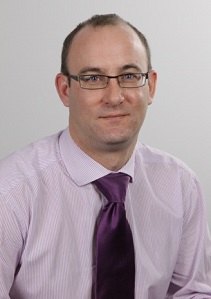 What did you study?
What did you study?
I did A-level maths, physics and chemistry. I thought they were interesting and would give me the most options for a science based university course. Then I completed an MEng(hons) in Mechanical Engineering at Bristol University, followed by a PhD in Mechanical Engineering.
Why did you decide to work in the aerospace industry?
It was a change from the work that I did for my PhD, which had been investigating new equipment for the food industry. I had always had an interest in aviation through my hobbies and I thought that a research position in the aerospace industry would give me the opportunity to get involved with some of the latest technology.
Was it difficult to get your first job?
Going from a first degree to a PhD was fairly straightforward because I stayed at the same university. Securing my first job in industry was more difficult as it coincided with post dotcom stock market declines. I applied to a lot of companies and received a lot of rejections and relatively few interviews. I did cut down my options by applying to companies where I wanted to work and places where I wanted to live.
What was your first job?
I was Research Engineer in the Materials Sciences Department of the BAE Systems Advanced Technology Centre. Most of the work directly was for BAE Systems but we also carried out consultancy work for other companies.
I was involved with mechanical testing of novel materials at different strain rates which is particularly important for crash test simulation. I also worked in a team operating a two-stage high-speed gas gun to simulate impact events ranging from missile fragment impacts on military aircraft to bird strike simulations using projectiles made from jelly.
We investigated an effect called Hydraulic Ram – when projectiles enter fuel tanks the shock wave formed causes them to spectacularly blow apart. This was all captured for analysis using high speed digital cameras.
The job was a good combination of project management, practical work, data analysis and report writing. BAE Systems supported me to become a Chartered Engineer and I progressed from higher engineer to senior engineer and lastly a principal engineer, which meant more responsibility and challenges.
What do you do now?
I work as a Consultancy and Applications Engineer for Imetrum, a measurement equipment company formed out of the University of Bristol which uses clever software and cameras to make precision measurements from video.
My job involves supporting clients in finding the right equipment for their needs, demonstrating equipment to potential customers and running training courses to teach them how to use it. I also carry out consultancy work where we take measurements for clients on a one off basis; typical examples might be measuring material behaviours in test laboratories, or looking at bridge deflection under loading.
At BAE Systems I used both static and high speed cameras to make material property measurements, so the move to Imetrum was a natural progression; although it is very different working for a company with less than 20 people. I enjoy the variety and the responsibility that small companies are able to give.
Why would you recommend an engineering career to others?
I think that research and development is a fascinating area to work in. You are constantly seeing the newest and most up-to-date technologies, evaluating the most promising ones and introducing them to engineers within the company.
Some companies keep R&D spending low because often the benefits are not directly visible but it is essential to carry out basic research to improve future products and remain competitive in an international marketplace. It generally takes a while for the technology to filter down from the research stage but the results are worthwhile. It is particularly satisfying to see a technology you worked on make it onto a product.
I am now in a more commercial role where I see how new technology can give a business an advantage. Working with clients in different sectors gives an exciting and broad view of engineering.
Have you found Professional Registration useful in your career?
During my time at BAE Systems it was becoming increasingly important to achieve professional registration and to be chartered. A list of Chartered engineers was displayed in the foyer in the entrance to the building. I found it particularly useful when I came to change jobs, as it demonstrated my competence as an engineer.
I am now involved in helping younger engineers in our company to become chartered. I have also mentored two Arkwright scholars.
Would you encourage young people to go into engineering?
I am keen to encourage school children to understand engineering. I am a STEMNET ambassador and have visited primary and secondary schools. I have talked about materials science and demonstrated high speed video cameras – the experiments with balloons full of water are always popular!